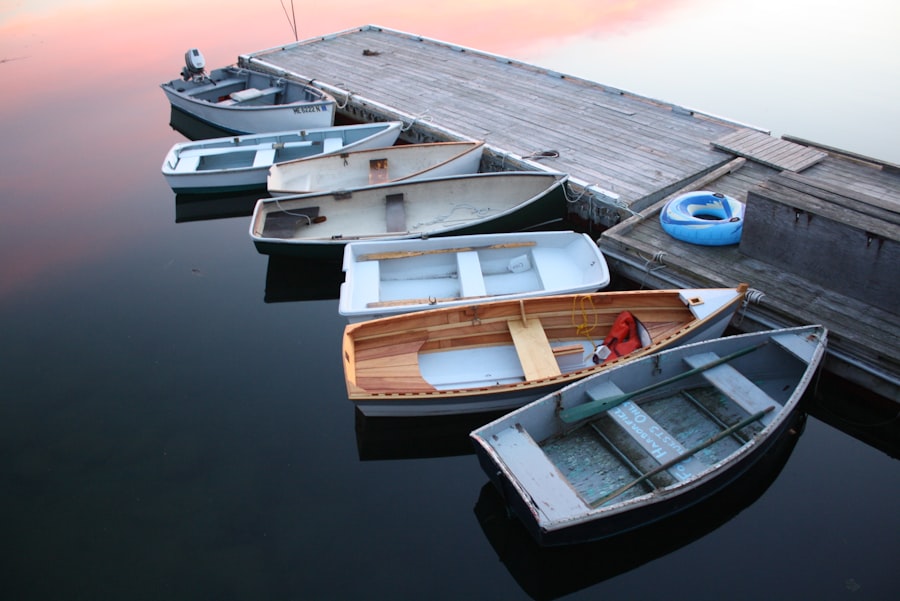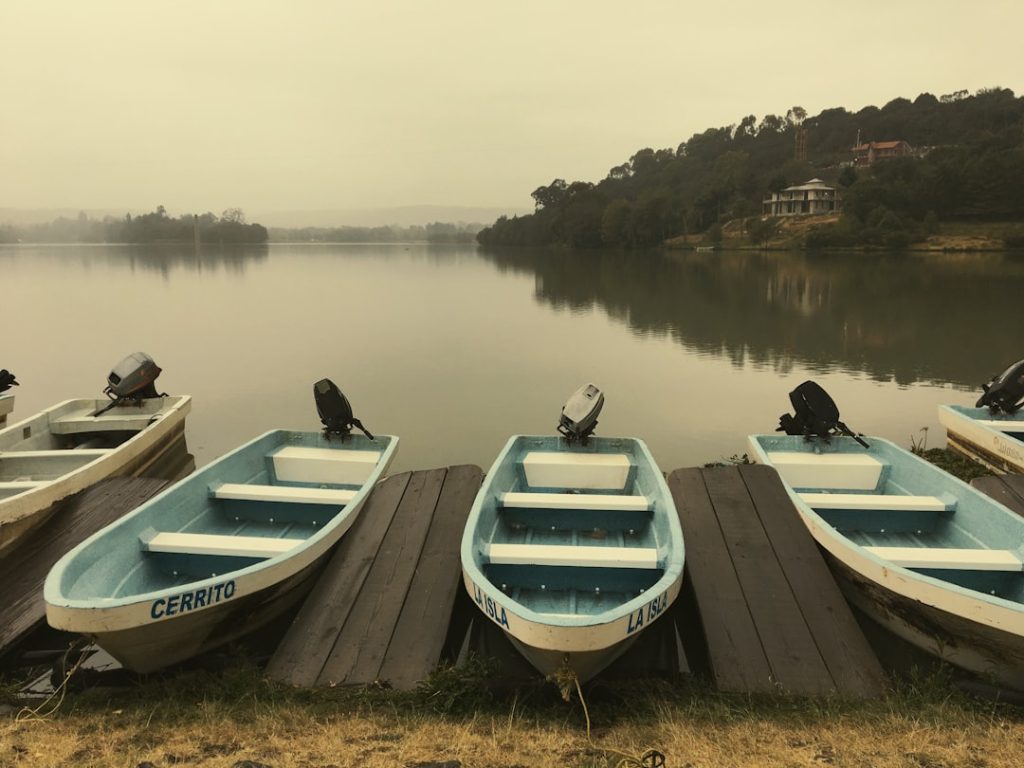Before embarking on the journey of purchasing a boat, it is crucial to take a step back and assess your specific needs. The type of boating experience you envision will significantly influence the kind of vessel you should consider. Are you looking for a boat primarily for leisurely weekend outings with family, or do you have aspirations of competitive sailing?
Perhaps you are interested in fishing, water sports, or even long-distance cruising. Each of these activities demands different features and specifications from a boat, making it essential to clarify your intentions before diving into the market. Additionally, understanding your needs involves considering the number of people you plan to accommodate.
A small fishing boat may suffice for solo trips or outings with one or two friends, while a larger yacht might be necessary for family gatherings or entertaining guests. Furthermore, think about the types of waters you will be navigating. Will you be cruising on calm lakes, venturing into coastal waters, or tackling open ocean conditions?
Each environment presents unique challenges and requirements that can dictate the design and capabilities of the boat you ultimately choose.
Key Takeaways
- Clearly define your boating needs before starting the search.
- Familiarize yourself with different types of boats to match your activities.
- Set a realistic budget, including additional costs beyond the purchase price.
- Weigh the pros and cons of buying new versus used boats.
- Conduct thorough market research and inspections to ensure a sound purchase.
Types of Boats Available:
The boating market is diverse, offering a wide array of vessels tailored to various activities and preferences. Among the most common types are powerboats, sailboats, and personal watercraft. Powerboats are favored for their speed and ease of use, making them ideal for water sports, fishing, and day cruising.
They come in various forms, including runabouts, cabin cruisers, and offshore fishing boats, each designed for specific purposes. For instance, a cabin cruiser provides amenities for overnight trips, while a runabout is perfect for quick jaunts on the water. Sailboats, on the other hand, appeal to those who appreciate the art of sailing and the tranquility it brings.
They range from small dinghies to large yachts capable of long-distance voyages. The choice between a monohull and a multihull can also impact your sailing experience; monohulls are traditional and often more stable in rough waters, while multihulls offer greater space and speed. Personal watercraft, such as jet skis, cater to thrill-seekers looking for an adrenaline rush on the water.
Each type of boat has its own set of advantages and disadvantages, making it essential to align your choice with your intended use.
Budget Considerations:

When it comes to purchasing a boat, budget considerations play a pivotal role in determining what options are available to you. The initial cost of the boat is just one aspect; prospective owners must also factor in ongoing expenses such as insurance, maintenance, storage, fuel, and equipment. A common misconception is that once the purchase is made, the financial obligations cease.
In reality, owning a boat can be akin to owning a second home, with costs that can accumulate quickly if not carefully managed. Setting a realistic budget requires thorough research into both new and used boats within your desired category. For example, if you are eyeing a new powerboat priced at $50,000, consider whether you can comfortably afford the additional costs associated with ownership.
Alternatively, exploring the used market may yield significant savings while still providing access to quality vessels. It’s also wise to account for potential upgrades or modifications that may be necessary after purchase. By establishing a comprehensive budget that encompasses all aspects of boat ownership, you can make informed decisions that align with your financial situation.
The decision between purchasing a new or used boat is often one of the most significant choices prospective owners face. New boats come with the allure of modern technology, warranties, and customization options tailored to your preferences. They often feature the latest advancements in design and safety, providing peace of mind for first-time buyers.
However, this luxury comes at a price; new boats typically carry higher price tags and may depreciate quickly in value once they leave the showroom. Conversely, used boats present an opportunity to acquire a vessel at a more affordable price point. The used market is replete with options ranging from well-maintained older models to nearly new boats that have seen minimal use.
However, buying used requires diligence; potential buyers must be vigilant about inspecting the vessel’s condition and understanding its history. Factors such as previous ownership, maintenance records, and any modifications made can significantly impact the value and performance of a used boat. Ultimately, whether you choose new or used will depend on your budgetary constraints and personal preferences regarding features and reliability.
Researching the Market:
| Metric | Description | Example Value | Importance |
|---|---|---|---|
| Market Size | Total potential customers or revenue in the market | 1,200,000 customers | High |
| Market Growth Rate | Annual percentage increase in market size | 8% | High |
| Customer Segments | Distinct groups of customers with similar needs | 3 segments (Youth, Adults, Seniors) | Medium |
| Competitor Market Share | Percentage of market controlled by top competitors | Competitor A: 35%, Competitor B: 25% | High |
| Customer Needs | Key requirements and preferences of target customers | Quality, Price, Convenience | High |
| Pricing Trends | Average price changes over time in the market | Stable with 2% annual increase | Medium |
| Distribution Channels | Methods used to deliver products to customers | Online, Retail Stores, Direct Sales | Medium |
Thorough market research is an indispensable step in the boat-buying process. With countless manufacturers and models available, understanding current trends and pricing can empower buyers to make informed decisions. Start by exploring online resources such as boating forums, manufacturer websites, and classified ads to gain insight into what’s available in your desired category.
Websites like Boat Trader or YachtWorld provide extensive listings that allow you to compare prices and features across different models. Additionally, attending boat shows can be an invaluable experience for prospective buyers. These events showcase a variety of vessels in one location and often provide opportunities to speak directly with manufacturers and dealers about their products.
Engaging with other boating enthusiasts can also yield insights into what works well for different activities and environments. By immersing yourself in the boating community and gathering information from multiple sources, you can develop a clearer picture of what to expect in terms of pricing and availability.
Finding the Right Dealer:
Selecting the right dealer is crucial in ensuring a smooth purchasing experience when buying a boat. A reputable dealer not only offers quality vessels but also provides essential support throughout the buying process and beyond. Start by seeking recommendations from fellow boaters or conducting online research to identify dealers with positive reviews and strong reputations in your area.
Once you have identified potential dealers, visit their showrooms or websites to assess their inventory and customer service approach. A good dealer should be knowledgeable about their products and willing to answer any questions you may have regarding specifications or financing options. Additionally, inquire about after-sales support such as maintenance services or warranty coverage; these factors can significantly enhance your ownership experience.
Building a relationship with a trustworthy dealer can lead to valuable insights and assistance long after your purchase is complete.
Inspecting the Vessel:

Whether you are considering a new or used boat, conducting a thorough inspection is paramount before finalizing any purchase. For new boats, inspect for any manufacturing defects or issues that may have arisen during production or transport. Pay close attention to details such as the quality of finishes, functionality of systems (like electrical and plumbing), and overall craftsmanship.
When it comes to used boats, inspections become even more critical due to potential wear and tear from previous use. It’s advisable to hire a marine surveyor who can provide an expert assessment of the vessel’s condition. They will evaluate key components such as the hull integrity, engine performance, and safety equipment compliance.
Additionally, reviewing maintenance records can offer insights into how well the previous owner cared for the boat. A comprehensive inspection not only protects your investment but also ensures that you are fully aware of any repairs or upgrades that may be necessary post-purchase.
Making the Purchase:
Once you have identified the right boat and completed all necessary inspections, it’s time to navigate the final steps toward making your purchase official. This process typically begins with negotiating the price; being well-informed about market values will empower you during this stage. Don’t hesitate to discuss any concerns that arose during inspections; addressing these issues can lead to adjustments in price or additional concessions from the seller.
After agreeing on a price, ensure that all paperwork is meticulously reviewed before signing anything. This includes understanding financing options if applicable, as well as any warranties or service agreements offered by the dealer or manufacturer. It’s also essential to verify that all necessary documentation related to ownership transfer is completed accurately to avoid complications down the line.
Finally, once all agreements are finalized and payments made, take time to familiarize yourself with your new vessel before hitting the water. Understanding its systems and features will enhance your boating experience and ensure safe navigation from day one. With careful planning and consideration throughout each stage of the buying process, you can embark on countless adventures on your new boat with confidence and excitement.


